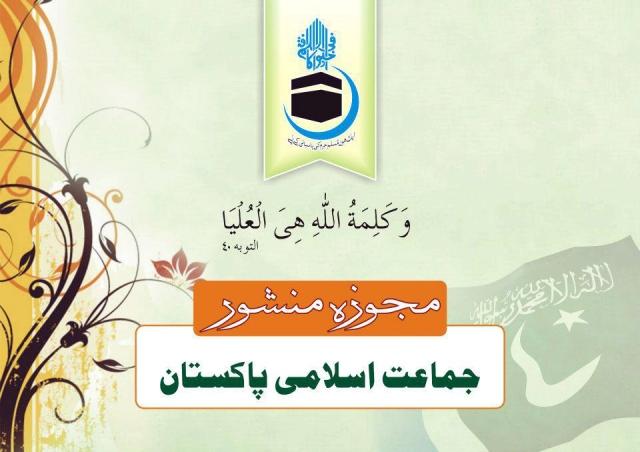ISLAMABAD/KABUL among their top priorities.
The Pakistan People’s Party (PPP) says it continues to reshape the relationship with Afghanistan based on peace, brotherhood, respect and cooperation. “We will not allow Pakistan’s territory to be used for cross-border terrorism against Afghanistan.”
In its election manifesto, the country’s largest party said it had demonstrated its commitment to noninterference in Afghanistan by supporting only Afghan-led paths to stabilisation and peace. We firmly adhere to the principle of supporting our neighbour without meddling in its internal affairs…”
The PPP government deployed 151,000 soldiers on the western borders to prevent infiltration by extremists, in addition to setting up over 800 border security posts to check the movement of narcotics, criminals and militants.
“As the region shifts towards a period of transition, with a drawdown of US military forces and elections in Afghanistan, our government will work with Pakistan’s neighbours and allies to build a strong and stable region,” the PPP manifesto says.
It promised enhanced efforts to establish regimes for free trade arrangements, comprehensive economic partnerships, financial and banking systems, trans-regional and intra-regional energy supply and energy security arrangements.
It believed that a stable, peaceful and prosperous Afghanistan was fundamental to Pakistan’s stability. “During our current tenure, Pakistan signed a historic transit trade agreement with Afghanistan and ensured that there is broad-based engagement at the highest level with all political groups.
The Awami National Party (ANP) referred to Pakistan’s borders with four countries, each playing a major part in international affairs. Pakistan’s proximity to China, India, Iran and Afghanistan is a useful tool for powerful countries to exploit it for their own global interests.
If it comes to power, the ANP will build at least 10 more roads and rail links to enhance bilateral trade. It said the two main road links (Torkham and Spin Boldak) were insufficient to cater for the growing trade between the two countries.
The region had suffered the most serious dislocation due to conditions in Afghanistan ever since 1979, it added. “Extremist elements have sought refuge in parts of FATA and have, unfortunately, succeeded in imposing themselves on the tribes.”
Special attention would be paid to expanding relations with Afghanistan, the Pakhtun nationalist party said, adding determined efforts would be made to promote cooperation in economic, commercial, educational and cultural fields.
Led by Mian Nawaz Sharif, the Pakistan Muslim League-N said the country could be a bridge between energy-rich Central Asia and Iran on one side and energy-deficit countries like China and India on the other.
The PML-N will make concerted efforts to strengthen Pakistan’s relations with neighbours, including Afghanistan. Its objectives include establishing cordial and cooperative ties with all countries, especially with neighbours.
Another major party, the Pakistan Tehrik-i-Insaf (PTI), said it would ensure peace in the region. “Conflicts within or across our borders will only divert the national resources and energies,” it argued.
The external threat to the country had been minimised by its nuclear capability, but the conflict in Afghanistan was already having an adverse impact in border areas, the Imran Khan-led group said.
“We must arrest this spread of militancy through effective diplomatic measures and a show of force where necessary,” the PTI stressed in its manifesto that also called for pursuing peace with all neighbouring countries based on sovereign equality, mutual benefit and non–interference.
Jamiat Ulema’s right to be a party in the reconciliation process will be acknowledged to ensure peace in Afghanistan.”
His party had been against the war in Afghanistan from the very first day, the JUI leader explained. “Dialogue is the only way to maintain peace in the region.”
Interestingly enough, the manifesto of Jamaat-i-Islami, another right-wing party that had cordial ties with Afghan mujahidin, says nothing about Afghanistan. Instead, it prioritised talks on expanded relations with China and India.
Political analyst Mohammad Hassan Haqyar said Pakistani parties held different positions on Afghanistan. He said the PPP and ANP had consistently sought better Afghan-Pakistan relations.
In view of their robust interaction with the US-led international fraternity, the two parties would continue to pursue cooperative ties with the war-torn country, he believed.
Haqyar thought the Jamaat-i-Islami did not consider the Karzai administration as a genuine political set-up that represented the Afghan masses. And that was why the party had made no mention of Afghanistan in its election programme.
He accused the JUI-F of following a policy of duplicity toward Afghanistan. He noted there had been clear contradictions in Fazlur Rahman’s statements and practices. “In a word, he is a hypocrite when it comes to Afghanistan.”
mud
Views: 11









GET IN TOUCH
NEWSLETTER
SUGGEST A STORY
PAJHWOK MOBILE APP